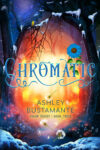Something Else To Learn From The Secular, Part 2
Check out this post by J. Mark Bertrand, whose work I discovered not long ago (and have greatly enjoyed):
Aratus is one of the poets quoted by the Apostle Paul at Mars Hill. His Phaenomena begins in the following way:
Let us begin with Zeus, whom we mortals never leave unspoken.
For every street, every market-place is full of Zeus.
Even the sea and the harbour are full of this deity.
Everywhere everyone is indebted to Zeus.
For we are indeed his offspring…That last line should be familiar to readers of Acts 17. Paul, in announcing the identity of “the unknown god” to his Athenian audience, assures them that God “is actually not far from each one of us” (v. 27). He backs up this claim not with an Old Testament quote but with a line attributed to Epimenedes of Crete — “In him we live and move and have our being” — and the aforementioned line from Aratus: “For we are indeed his offspring.” The fact that Paul was familiar enough with classical pagan authors to quote lines from their poetry in support of his argument is often cited by teachers today as a mandate for cultural engagement. To speak to our culture, we have to know our culture.
But it seems to me that Paul’s behavior is even more striking than this. He doesn’t just quote a line from Aratus, he quotes Aratus on the omnipresence of Zeus. Think about that for a moment …
What Paul’s action suggests to me is simple enough. A Christian thinker should have no problem reading the work of non-Christian authors, finding the truth there, and putting it in the context of a larger truth.
After getting over my initial shock upon reading this, my first thought was that it serves as complete confirmation that believers in Christ can—and should—use media that has been associated with the world—with pagan worship, even. This argument that Christians shouldn’t do this or have any part in that because of its previous association holds even less water for me now. Science fiction is often considered the bastion of atheism, while fantasy is condemned as occultic or New Age. And yet—not only should we appropriate the genre as a way to reveal truth (“knowing the terror of the Lord, we persuade men” and “I become all things to all people”), but there’s nothing ungodly about some of us being conversant enough in the thoroughly secular end of things to dialogue intelligently with fans who might not listen to “ordinary” Christians. (And nobody could accuse the apostle Paul of being ordinary … the man was astounding!)
Christian SF/F fans are often regarded as uber geeks. A few times recently I’ve laughingly referred to myself as a freak among freaks … y’know, Paul says we are a peculiar people, but some of us are more peculiar than others. But I’ve had a growing conviction that God made us thus for a purpose—HIS purpose—because we are uniquely suited to represent Him to a portion of society who might otherwise never think twice about what Christianity really is.
What they don’t realize is that all the wonder they long for—all the honor, and goodness, and truth, and the unanswered questions—it all lies with Him. The longings that are spoken of in their writings, are met in Him. Let us, then, hold the standard of His name up high—and not be afraid to walk among those who seem to be hostile to us, or Him.
If God is with us, who can be against us?

































